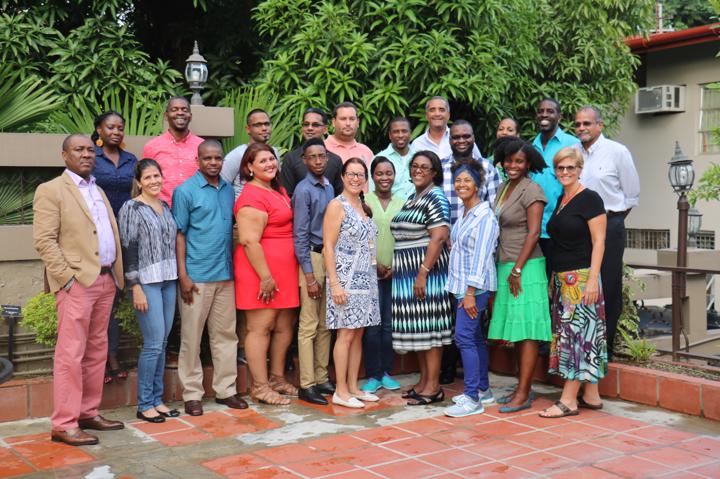People Managing Oceans
17 Dec 2018 | by IW:LEARN on Exposure
Engaging stakeholders is critical for effective management of Large Marine Ecosystems (LMEs). This was a strong message emerging from the 9th Global Environment Facility International Waters Conference (IWC9) held November 5-8, 2018 in Marrakesh, Morocco. But how is this made a reality? Organisations working in the Caribbean and North Brazil Shelf Large Marine Ecosystems (known collectively as the CLME+ region) have developed a model to engage civil society, fisherfolk and other users of coastal and marine resources which they think can also be applicable in other LMEs.The Civil Society Action Programme for the Sustainable Management of the Shared Living Marine Resource of the Caribbean and North Brazil Shelf Large Marine Ecosystems (CLME+ C-SAP) was published under the popular title “People managing oceans” (in English and Spanish). The CLME+ C-SAP supports implementation of the 10-year Strategic Action Programme for the Sustainable Management of the Shared Living Marine Resources of the Caribbean and North Brazil Shelf Large Marine Ecosystems (CLME+ SAP). This provides a roadmap towards sustainable living marine resources management for the long-term vision of “a healthy marine environment [in the CLME+ region] that provides benefits and livelihoods for the well-being of the people of the region.”Although efforts were made to consult stakeholders when the CLME+ SAP was developed, it mainly contains priority actions that would be undertaken from a governmental/public sector perspective. However, successful management of the region’s shared living marine resources demands the involvement of not just public sector actors, but also those societal groups that have a direct stake in the governance, management and use of shared living marine resources to: 1) ensure buy-in and support for the decisions that are being made, 2) increase and scale up the opportunities and potential for implementation, and 3) foster socially just outcomes.The CLME+ Project recognised that civil society is already playing a key role in marine conservation and sustainable livelihoods and therefore needs to be included in the implementation of the CLME+ SAP. The project included a specific component to address this and the Caribbean Natural Resources Institute (CANARI) was brought on as an executing partner based on its thirty years of work across the Caribbean to facilitate and promote participatory approaches to natural resource management.CANARI conducted an in-depth stakeholder analysis to assess who were the key civil society actors and what roles they were playing, and could play, in the CLME+ region. Representatives of civil society from across the CLME+ region came together in a regional workshop in January 2018 in Trinidad and Tobago. They collectively analysed the strategies and actions in the CLME+ SAP and identified areas where civil society could contribute to implementation.


























